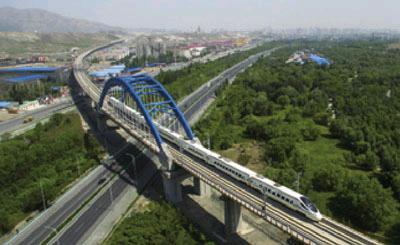Open and Connected
2015-09-30ByLiuXinlian
By+Liu+Xinlian
For many people who have planned to travel to Xinjiang Uygur Autonomous Region, safety problems represent one of their major concerns prior to embarking on their journey. Their worry stems from the terrorist attacks that have occasionally occurred in the northwestern region.
“I hope it will no longer be a concern for people in the future,” said Li Xuejun, Director of the Publicity Department of the Communist Party of China Xinjiang Uygur Autonomous Regional Committee. “We are all working devoutly to achieve this goal.”
Security concerns
A terrorist attack in a market in Urumqi, capital city of Xinjiang, on May 22 last year left at least 31 dead and 94 injured. Another attack in Kashgar Prefectures Shche County on July 28 last year claimed 37 lives and injured 13 people.
After the attack last May, the number of tourists to Xinjiang dropped sharply. In the first half of 2014, the number of tourists visiting the region fell for the first time in two decades.
In August, Xinjiang simplified its passport application procedure and shortened the application time for local residents. The passport application process became tougher after a terrorist-inspired riot in Urumqi on July 5, 2009, which killed 194 people and injured more than 1,000 others. Xinjiang residents had to fill in more paperwork and wait longer than people in other parts of China. For someone living in Beijing, it took one week to receive a passport; in Xinjiang, it took more than three months.
“I understand the former policy was necessary for the safety of Xinjiang, given that some people crossed the borders illegally,” said Wang Se, a local resident.
On July 9, Thailand repatriated 109 illegal immigrants from China who had been on their way to Turkey, Syria or Iraq to participate in the so-called “holy war” ongoing in the region, according to the Chinese Ministry of Public Security.
“Xinjiangs new policy shows its growing confidence in maintaining its security. The innocent should not pay the price for those illegal immigrants,”said Shan Renping, a commentator with the Beijing-based Global Times.
It remains difficult for Xinjiang to achieve a balance between security and convenience. Xinjiang has the strictest security checks in China. They are conducted at the entrances to public places, including department stores, supermarkets, hotels and even parks.
Bringing closer
Safety concerns have not hindered Xinjiangs development. Like most other provinces and regions in China, it has tried to develop its economy through opening up and being connected both domestically and with foreign countries.
In 2014, Xinjiang launched its first highspeed rail link from Urumqi to Hami, Xinjiangs easternmost prefecture, cutting the traveling time from six to three hours. A high-speed rail link from Beijing to Urumqi is due to open by 2017, reducing the travel time from 48 to 19 hours, maybe even fewer.
“The travel time of 19 hours is based on an average speed of 200 km/h, but the rail link is designed for speeds of up to 350 km/h. The possibility of a shorter travel time exists,” said Zhang Weimin, General Manager of the Urumqi High-Speed Railway Hub Construction Co.
Urumqi used to be the terminal of a major railway route in China. Looking at the city in a wider context, it is a central point connecting China, central Asia and Europe. In March 2014, Xinjiang launched a freight train service to Kazakhstan, Georgia, Iran, Turkey and Chelyabinsk in Russia. China also proposed a high-speed rail link between Beijing and Moscow during Premier Li Keqiangs official visit to Russia in October 2014.
The China-Russia high-speed rail corridor would constitute a key project in the Silk Road Economic Belt China plans to create. The idea was introduced in 2013, and it aims to deepen the connection between China and Central Asian countries.
Emotional links
Xinjiang has also realized the importance of openness and connection in ways other than in physical terms.
Eliminating estrangement and improving understanding among people from different ethnic groups in Xinjiang are crucial to the future of the region and China, said Zhang Chunxian, Party chief of Xinjiang.
Since March 2014, a plan has been initiated whereby 200,000 officials from local government departments, state-owned enterprises and academic institutions will be sent to work in villages. The first batch of more than 70,000 officials assigned to over 10,000 work groups have already finished one year of working and living in villages, farms and communities.
Yang Hang from the information office of the Xinjiang regional government was one such official. During his stay in Hotan, where Uygur people make up 90 percent of the population, he and his colleagues visited the villagers frequently and helped them solve their difficulties, including water shortages, poor housing and inadequate funding.
“This program has made our link with villagers closer,” said Yang.
